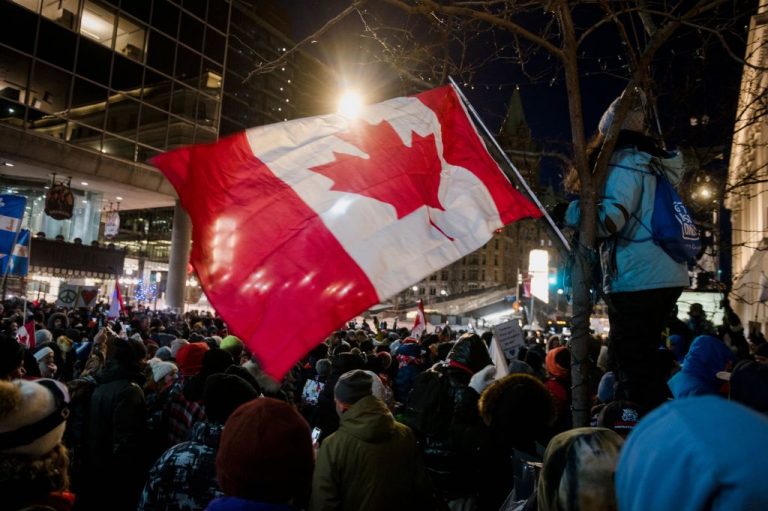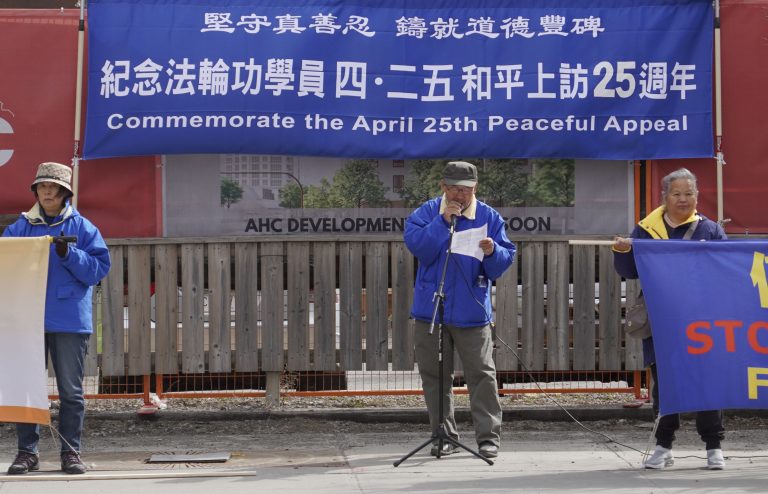Canada’s federal finance regulator, the Finance Transactions and Reports Analysis Centre of Canada (FINTRAC), that is tasked with tracking down and interrupting the financing of terrorist organizations, among other things, said on Feb. 25 that donations that poured into crowdfunding campaigns for the Freedom Convoy were “harmless” and that the donations appear to be an “honest outpouring of public support.”
Barry MacKillop, Deputy Director of Intelligence for FINTRAC, referring to the 10’s of thousands of Canadians and Americans who donated to the campaigns, said that “I believe they just wanted to support the cause.”
The comments stand in stark contrast to how the Trudeau government has been characterizing the individuals who have donated to campaigns set up by protest organizers on GoFundMe and GiveSendGo.
The Canadian government, in tandem with the state-funded Canadian Broadcasting Corporation (CBC) and other heavily government subsidized Canadian corporate media entities, like Global News and CTV, were pushing the narrative that the protests were “foreign funded.”
The media was parroting comments made by Canada’s Emergency Preparedness Minister Bill Blair who said on Feb. 16 that the protests were “largely foreign-funded” and were a “targeted and coordinated attack.”
Success
You are now signed up for our newsletter
Success
Check your email to complete sign up
“We will not let any foreign entities that seek to do harm to Canada or Canadians erode trust in our democratic institutions, or question the legitimacy of our democracy,” Blair said at the time.
The comments prompted security consultant and former CSIS and CSE intelligence analyst Phil Gurski to say, “That’s a hell of an accusation to make. It’s a fairly alarming accusation that what started out as a protest — whether you believe in it or not is irrelevant, people have a right to protest under the charter — is actually a threat to our sovereignty as a nation.”
It was later determined that the majority of donors to the crowdfunding campaigns were indeed Canadians followed up by citizens of Canada’s closest ally and largest trading partner the United States after illegally obtained data detailing donor activity was leaked online.
The wildly effective protests that erupted in Canada at the end of January prompted the Trudeau government to invoke the never-before-used Emergencies Act to quell the peaceful gatherings and gave authorities “tools” to attack the protester’s finances.
Invoking the act gave the Trudeau government the unprecedented power to arbitrarily freeze bank accounts of Canadian citizens without a court order and essentially placed all Canadians under martial law.
Chrystia Freeland, Canada’s deputy Prime Minister, said on Feb. 14, “The illegal blockades have highlighted the fact that crowdfunding platforms and some of the payment service providers they use are not fully captured under the Proceeds of Crime and Terrorist Financing Act,” implying donors to the crowdfunding campaigns were engaging in terrorist activity.
Although the Emergencies Act has since been revoked — purportedly because the measures were not going to be approved by Canada’s Senate — Freeland says that certain tools enacted under the temporary measures will become permanent.
“Some of those tools we will be putting forward measures to put those tools permanently in place. The authorities of FINTRAC, I believe, do need to be expanded to cover crowdsourcing platforms and payment platforms,” Freeland said in a panel interview on Zoom.


















